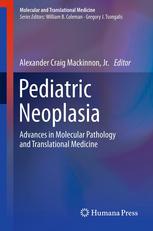

Most ebook files are in PDF format, so you can easily read them using various software such as Foxit Reader or directly on the Google Chrome browser.
Some ebook files are released by publishers in other formats such as .awz, .mobi, .epub, .fb2, etc. You may need to install specific software to read these formats on mobile/PC, such as Calibre.
Please read the tutorial at this link: https://ebookbell.com/faq
We offer FREE conversion to the popular formats you request; however, this may take some time. Therefore, right after payment, please email us, and we will try to provide the service as quickly as possible.
For some exceptional file formats or broken links (if any), please refrain from opening any disputes. Instead, email us first, and we will try to assist within a maximum of 6 hours.
EbookBell Team

0.0
0 reviewsPediatric Neoplasia: Advances in Molecular Pathology and Translational Medicine presents many of the major, relevant advances in molecular pathology that are occurring in the field of pediatric oncology and will serve as a useful overview for resident and attending physicians as well as scientists interested in understanding the molecular pathology of pediatric cancer in the context of clinical medicine. Chapters are based upon organ systems, and each is written by an expert or pair of experts in their field with subspecialty training and extensive clinical experience. Each chapter describes a variable number of tumors and includes an overview of the classification system and clinicopathological characteristics of each tumor. This is followed by a discussion of the molecular pathology relevant to a specific tumor, including specific molecular markers of the tumors, methods used for diagnosis or clinical management, clinical significance of the markers, and if appropriate, a description or discussion of current activities in translational research or issues that need to be addressed in the future. Pediatric Neoplasia: Advances in Molecular Pathology and Translational Medicine will be of great value to pathologists, oncologists, hematologists, internal medicine and pediatric specialists, as well as pharmaceutical professionals and translational and clinical researchers.